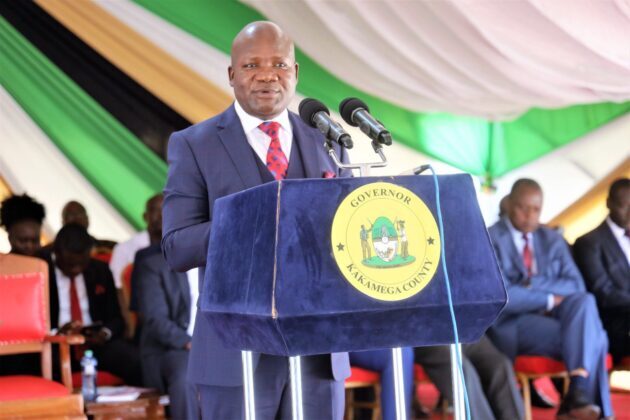
Kakamega Governor Barasa Defends County Bursary Program Amid Legal Scrutiny » Capital News
KAKAMEGA, Kenya Jan 16 – Kakamega Governor Fernandes Barasa has defended county governments’ decision to provide bursaries for needy students, arguing that the initiative helps curb school absenteeism and dropouts.
Speaking in Matungu on Wednesday, Barasa explained that county bursaries were introduced to support students from low-income families who struggle to pay school fees. His remarks were in response to a letter from Controller of Budget Dr. Margaret Nyakango, dated January 14, 2025, clarifying the constitutional functions of counties regarding education support.
In the letter, Nyakango outlined that county governments are constitutionally mandated to oversee pre-primary education, village polytechnics, home craft centers, and childcare facilities, as specified in Part 2 of the Fourth Schedule of the Kenyan Constitution. However, she emphasized that primary, secondary, special education institutions, universities, and other tertiary institutions fall under the jurisdiction of the national government.
Budget Allocation and Adjustments
Under Barasa’s administration, Kakamega County initially allocated Sh240 million for bursaries, distributing Sh4 million per ward. However, in July 2024, during the disbursement of bursary funds in Ikolomani constituency for the 2023/2024 financial year, the governor announced a reduction to Sh180 million to prioritize county polytechnics and Early Childhood Development Education (ECDE) centers.
“I want to assure that capitation for county polytechnics will be timely to ensure uninterrupted programs,” Barasa stated, adding that the county would also enhance ECDE infrastructure and improve the welfare of ECDE teachers.
Calls for Expanded County Support
Barasa’s spouse, Prof. Janet Kassily Barasa, who runs a program sponsoring teenage mothers to return to school, echoed his sentiments, urging counties to be allowed to expand bursary allocations.
Speaking on Wednesday while visiting teenage mothers who sat for the 2024 KCSE, she warned that restricting counties from offering bursaries could negatively impact access to education.
Civil Society Raises Concerns Over County Spending
However, civil society organizations (CSOs) in Kakamega have raised concerns over county governments undertaking national government functions, leading to budget constraints, stalled projects, and funding shortages.
Edward Wambani, Chair of the Kakamega County Civil Society Network, cited the stalled Level 6 hospital project as an example, arguing that it was initially a national government project but was taken up by the county.
“The constitution clearly defines national and county government functions. Kakamega took up the construction of the Level 6 hospital, yet it was a national government responsibility. Now, the project has stalled, and neither government is acting on it,” Wambani noted.
He emphasized the need for collaboration and dialogue between county and national governments, particularly for high-cost projects, to avoid financial wastage.
Legal Perspective on County Bursaries
Nyakango’s letter further clarified that if a county wishes to undertake education functions assigned to the national government, it must follow Article 187 of the Constitution, which requires a formal transfer of functions.
“Any requisition for withdrawal of funds to perform functions categorized under the national government must be accompanied by an intergovernmental agreement as prescribed by law,” the letter stated.